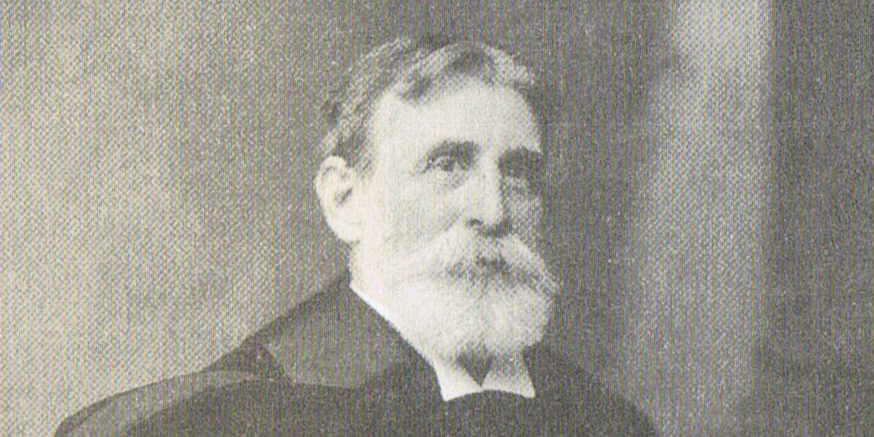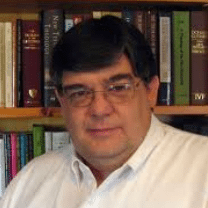
Did B. B. Warfield believe in Theistic Evolution? Correcting Popular Misconceptions
Fred Zaspel has contributed a chapter to the award-winning Theistic Evolution (Crossway). In his chapter, Zaspel argued that B.B. Warfield did not hold to theistic evolution despite the suggestions of scholars such as David Livingstone and Mark Noll. While Warfield seemed to be open to the idea of a very limited definition of theistic evolution, and only then if it could be proven, the claim that he held such a view goes against the full evidence. In this interview, we talk with Fred Zaspel to learn more about Warfield and the debate over evolution.
Why should 21st century Christians be concerned with what a 19th century theologian believed about theistic evolution?
It’s a question of Historical Theology. In Warfield’s case it is significant because 1) he was such an outstanding, internationally recognized scholar-theologian; 2) he was recognized as a conservative theologian who championed the doctrine of biblical inspiration and inerrancy; and 3) largely because of the influence of Livingstone and Noll it has been widely assumed that Warfield was a theistic evolutionist. Warfield’s beliefs on this or that doctrine are not normative, of course, but for a theologian of Warfield’s stature and reputation to hold to theistic evolution would be significant itself. And now today, given the assumption that he endorsed theistic evolution, it becomes important to set the record straight. You can find in Warfield statements of genuine openness to the theory, but nowhere can you find that he endorsed it.
You suggest that Warfield believed the creation of Eve was the “leading obstacle to a Christian’s embracing of evolution.” Why did Warfield believe the creation of Eve was a bigger obstacle to theistic evolution than the creation of Adam or any other aspect of the Genesis creation account?
Because the details of Eve’s creation involve specifics – after Adam, from Adam, from Adam’s rib. We might imagine how “created from dust” could be construed in an evolutionary framework, but not this.
While Eve provides the biggest obstacle, Warfield also believed that other orthodox Christian doctrines provided further problems for theistic evolution. These doctrines include the origin of the soul, the human sense of morality, and the afterlife (960). Furthermore, Warfield included the incarnate Christ as a hindrance to theistic evolution. How did Warfield’s Christology impact his views of evolution?
Warfield’s point here is simply that evolution cannot account for Jesus – no evolutionary model can explain the incarnate Son of God.
You distinguish between evolution and creation through “second causes” (970). Warfield went so far to suggest that even John Calvin may have affirmed creation through “second causes.” What is the difference between evolution and “second causes,” and did Warfield believe that creation through second causes was an acceptable viewpoint?
Warfield allows that just as in providence God employs secondary causes (such as with the weather, the actions of people, and so on), so also he may employ second causes in his creative work (“Let the earth bring forth”), but he nowhere endorses this idea in an evolutionary sense.
You believe Warfield was open to theistic evolution but defined the terms very narrowly. What is the key difference between the type of theistic evolution that Warfield might have accepted and that which is commonly held today?
We have to be careful with wording here lest we misunderstand. Darwinism was (in)famously atheistic and randomly driven, notions that are entirely incompatible with a personal, purposeful God. So Warfield was “open” to the idea of some kind theistic evolution – and here’s the catch – if it could be proven. That is, he was committed to the accuracy of Scripture and held that if evolution could be scientifically proven, Scripture would in that case be found able to accommodate it. But it is just that “if” that Warfield never granted – he in fact often mocked the flimsy scientific and philosophical ground of evolutionary theories.
You provide ample evidence that Warfield “mocked [evolution’s] speculative character and logical fallacies” (972). What were some of the logical fallacies that Warfield believed evolutionists displayed?
His leading criticism here was that evolutionary scientists presuppose evolution in their interpretation of the “evidence.” That is, the evidence by itself did not indicate evolution even though at times it might fit the evolutionary model if that model is already assumed.
One reason some think Warfield may have been open to evolutionary theory was his willingness to embrace both special and general revelation. How did Warfield balance epistemic authority between these two sources?
Warfield insisted that whenever God speaks he speaks truthfully. Both in “general” and special revelation God speaks infallibly. But he also recognized the difference between general revelation (what God says) and science (human interpretation of natural revelation). He does not make this distinction formally, but he assumes it throughout his many critiques of contemporary scientific theories. Scripture, on the other hand, is God speaking – “God’s word written,” as he frequently said. It must be interpreted also, granted, but by its nature it is designed to more clarity and less liable to misunderstanding. Net, net – both general and special revelation are infallible, but special revelation has the clear advantage and takes precedence over human scientific theories. Warfield even makes the careful distinction: it is one thing to claim to believe in God and evolution but quite another to claim to believe the Bible and evolution.
A few scholars have suggested that Warfield grew more comfortable with theistic evolution as he grew older. Were Warfield’s views concerning theistic evolution consistent throughout his life or did they fluctuate with age?
The idea that Warfield grew more open to evolution with age is a myth for which I can find no supporting evidence whatever. Warfield’s lecture notes have later marginal insertions which only indicate more skepticism of evolution. And in one of his very latest remarks he acknowledges that he had held to evolution as a very young man but asserts plainly that he had left all that behind him by the time he was thirty years old.
I should clarify here that Warfield himself bears some of the blame for this confusion because he did often speak of his theoretical openness to the theory. But it was always an openness to it if the theory could be proven. This openness is what so many have noticed, and it has left a mistaken impression of acceptance. But Warfield never granted the “if,” and he to the end criticized evolutionary theory, even mocked it. And reading him entirely, as I have, you find countless details of theological commitment that are incompatible with any theistic evolutionary theory – Adam and Eve as the first humans, the entrance of death by Adam, and the original perfection of the created order, as just some examples. I detail much of this in my chapter in Theistic Evolution. Crossway has allowed me to post my chapter online, and you can read it here.
Do you believe that Warfield’s open-but-(extremely) cautious views concerning evolution are appropriate for Christians today?
I don’t see any compatibility between the biblical teaching of creation and any evolutionary theory.


